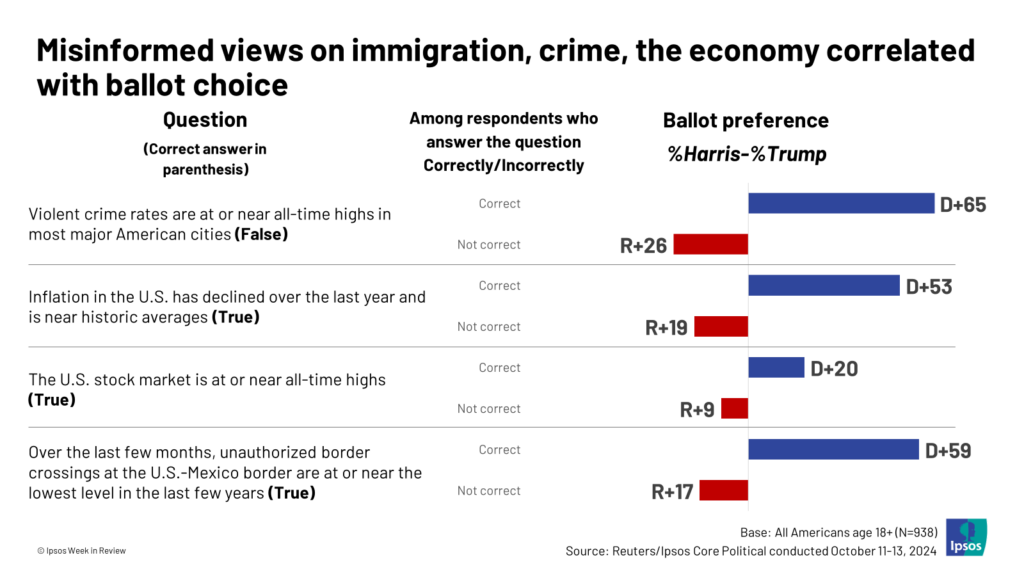Why Knowing Your Audience is So Critical to Success
Two weeks after election day, we’ve seen a lot of takes as to why Donald Trump was able to win. Yet, cutting through the noise, one factor stands out: inflation. Many swing voters supported Trump, drawn by memories of lower prices during his administration. Despite strong reservations about his character and policies, they prioritized the economy – specifically, prices – when voting in 2024.
But was the economy really that bad? In reality, inflation has declined significantly, and the stock market, real wages, and employment are at record highs. The Biden administration was able to execute a soft landing, reduce inflation, and avoid a recession, a feat pundits had deemed impossible. The economy should have been a reason to support Kamala Harris, not Donald Trump! But, Americans didn’t see it that way. According to exit polls, 68% of voters felt the national economy was either “poor” or “not so good.”
The gap between economic reality and voter perception was really the differentiator in this year’s election, making it the “perception election.” An IPSOS poll highlighted that misinformation was one of Harris’s greatest challenges. Voters who could correctly assess the state of crime, inflation, the stock market, and the border strongly favored Harris. However, among voters who couldn’t, she lagged. Unfortunately for Harris, more voters were misinformed than informed.
In political campaigns, it doesn’t matter what’s true. It matters what voters think is true. Campaign messaging needs to be more than just factually accurate; it has to be believable. Trying to correct perceptions can often backfire, making a campaign seem out of touch rather than persuasive. This is not to say you should lean into lying. Success lies not in bending the truth but in amplifying the aspects of it that align with voter concerns and beliefs.
To their credit, the Harris campaign avoided insisting the economy was roaring. Their shortfall, however, lay in failing to counter perceptions that held the Biden administration responsible for inflation. Harris’s remark that “Not a thing comes to mind” when asked how she’d differ from Biden only reinforced doubts about her alignment with voter concerns.
This underscores a fundamental belief at Javelina: to develop effective messaging, you have to know your target audience – not only who they are, but how they think, what they value, and what drives them. We live in a media environment that’s more crowded than ever. The only way to cut through is to meet your audience where they are, crafting messages that resonate and make an impact.


